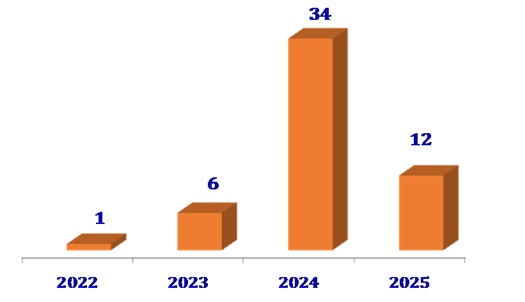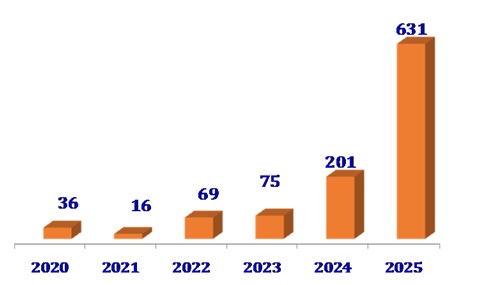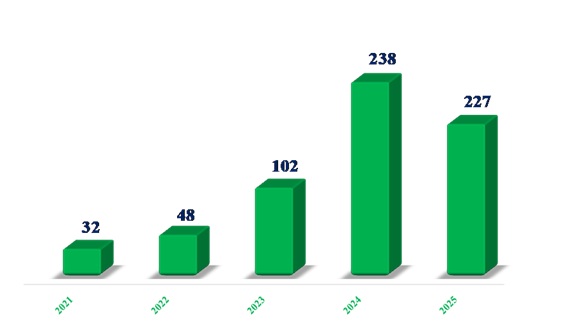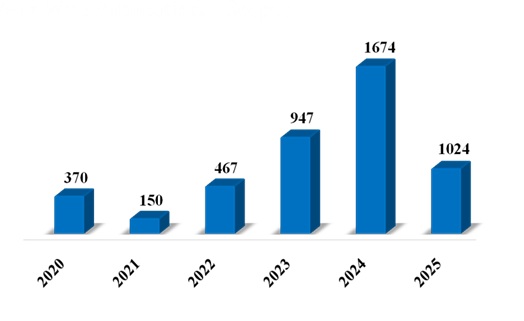SR University (SRU) is deeply committed to strengthening research, promoting innovation, and developing sustainable, future-ready infrastructure in alignment with the United Nations Sustainable Development Goal 9. The University's academic framework, research ecosystem, industry partnerships, and campus infrastructure collectively position it as a hub for technological advancement, entrepreneurship, and societal impact. Through its innovation-driven policies, advanced facilities, and collaborative culture, SRU consistently contributes to industrial growth, knowledge creation, and economic development in the region and beyond.
A strong policy framework anchors SR University’s innovation ecosystem. The Research and Consultancy Policy, Seed Grant Policy, and IPR Policy guide and incentivize high-quality research, consultancy services, and intellectual property development. These frameworks ensure ethical research practices, support faculty and student innovators, and encourage translation of research outcomes into real-world applications.
Research Centres and Institutional Support: SRU hosts 11 specialized research centres dedicated to frontier domains including artificial intelligence, advanced manufacturing, agriculture, clean energy, IoT, sustainability, and materials science. These centres facilitate interdisciplinary collaboration, promote applied research, and offer students hands-on exposure to emerging technologies. To strengthen research capability, SRU provides:
The University’s R&D Cell and IPR Cell play a pivotal role in enhancing research productivity, protecting intellectual property, and supporting patent filings, innovations, and tech-enabled projects.

Patents Granted

Patents Published

Publications Q1 Scopus

Publications Scopus
SR University’s on-campus SRiX Technology Business Incubator is one of India’s premier rural-focused technology incubators. It serves as a dynamic hub for innovation, entrepreneurship, and start-up growth by offering mentoring, seed funding linkages, business development support, technical guidance, and market access. SRiX nurtures student and faculty innovators, facilitates prototype development, and offers incubation facilities for start-ups working in areas such as:
Several start-ups emerging from SRU and SRiX directly contribute to sustainability initiatives and SDG-linked solutions. The incubator also collaborates with industry, government bodies, and venture networks to accelerate technology adoption and societal impact. Additionally, SRU’s Institutional Innovation Cell, aligned with Government of India guidelines, actively promotes design thinking, ideation challenges, hackathons, innovation competitions, and entrepreneurship development programs for students and staff.
SR University maintains deep and meaningful partnerships with industries, research institutions, and global universities through MoUs, joint research initiatives, and academic collaborations. These partnerships support technology co-development, student internships, faculty exchanges, industrial training, and collaborative workshops. Faculty members contribute to industry consultancy projects, offering expertise in engineering design, materials testing, environmental management, ICT solutions, e-commerce, and agriculture technologies. These consultancy engagements strengthen industry linkages and provide practical exposure to students and research teams. The University also receives research funding from Government of India agencies, further demonstrating its credibility and contribution to national research priorities. Projects funded by state and central agencies often focus on sustainable development, rural technologies, clean energy, and societal needs.
SRU’s campus infrastructure reflects its commitment to resilience, sustainability, and inclusive development. The University has built world-class academic blocks, laboratories, and collaborative spaces that encourage creativity, experimentation, and innovation. The key features of SRU’s sustainable infrastructure include:
The University also allocates a dedicated budget for sustainability activities, including green infrastructure development, awareness programs, and projects aligned with national missions and UN SDGs. These investments create an environmentally responsible campus that supports research productivity and aligns with global sustainability standards.
SR University plays a central role in strengthening regional innovation and skill development. Through add-on courses, certification programs, workshops, and hands-on training, the University equips students and local communities with industry-relevant skills. Skill development initiatives include:
The University ensures that research outputs and innovative products developed by SRiX, CSI labs, and research centres are transferred to communities, schools, and local industries to generate practical impact.
Through robust research centres, strong industry partnerships, advanced infrastructure, an active incubation ecosystem, and a policy-driven research culture, SR University demonstrates unwavering commitment to UN SDG 9. The University continues to drive innovation-led growth, support entrepreneurship, and build infrastructure that is resilient, modern, and environmentally responsible. SRU remains dedicated to shaping India’s future through technology, innovation, and sustainable development.